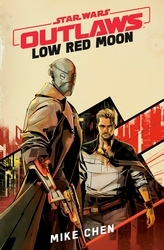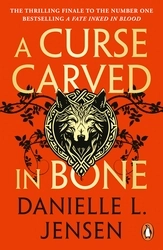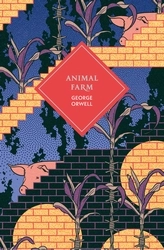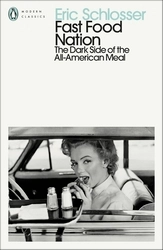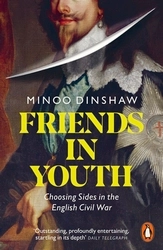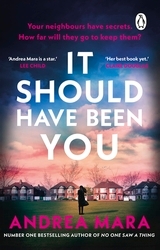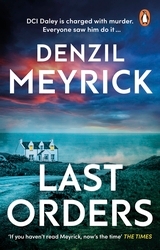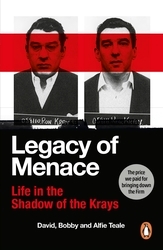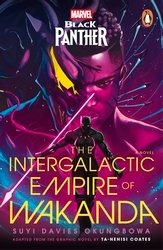- Books
- Series
- Authors
- Articles
Filters
Age
Publication Date
Format
Series
- A Commissario Brunetti Mystery (27)
- A Daisy Story (21)
- A Ladybird Book (27)
- A Puffin Book (94)
- Actiphons (51)
- Alex Cross (22)
- BBC Children's Classics (22)
- Baby Touch (53)
- Beatrix Potter Originals (21)
- Bluey (114)
- Brief Encounters (35)
- Bryant & May (16)
- Busy Day (15)
- Charles Paris Dramatisations (19)
- DOCTOR WHO (99)
- Diary of a Wimpy Kid (22)
- Discworld Novels (51)
- Do You Know? (47)
- Doctor Who (44)
- Doctor Who Target Novels – Classic Era (20)
- Everyman's Library Barbreck (16)
- Everyman's Library CHILDREN'S CLASSICS (63)
- Everyman's Library CLASSICS (240)
- Everyman's Library P G WODEHOUSE (103)
- Everyman's Library POCKET CLASSICS (42)
- Everyman's Library POCKET POETS (120)
- Everyman’s Library Contemporary Classics (170)
- Extraordinary Lives (16)
- Falco (20)
- Francis Thriller (51)
- Gargoylz (16)
- Green Ideas (20)
- Hairy Maclary and Friends (20)
- Harry and the Dinosaurs (15)
- Hey Duggee (114)
- How to Garden (22)
- In Their Own Words (23)
- Inspector Maigret (63)
- Jack Reacher (30)
- Jeeves & Wooster (20)
- Just a Minute (15)
- Key Words (36)
- Key Words with Peter and Jane (36)
- Ladybird Audio Adventures (25)
- Ladybird Readers (166)
- Ladybirds for Grown-Ups (34)
- Learn with Ladybird (19)
- Learn with Peppa (102)
- Little Book of (31)
- Little Clothbound Classics (47)
- Magic Kitten (16)
- Magic Tree House (22)
- Meg and Mog (19)
- Middle School (17)
- My Secret Unicorn (20)
- Nick Stone (20)
- Pelican Books (53)
- Penguin Archive (90)
- Penguin Clothbound Classics (88)
- Penguin Essentials (69)
- Penguin Great Ideas (92)
- Penguin Little Black Classics (127)
- Penguin Modern (46)
- Penguin Modern Classics (1118)
- Penguin Modern Classics – Crime & Espionage (40)
- Penguin Monarchs (43)
- Penguin Readers (161)
- Penguin Science Fiction (18)
- Penguin Specials (40)
- Peppa Pig (324)
- Pocket Wisdom (22)
- Private (19)
- Puffin Classics (31)
- Puffin Clothbound Classics (18)
- Read It Yourself (173)
- Redwall (22)
- Richard Bolitho (30)
- Ross O’Carroll-Kelly (23)
- Stanley (19)
- Star Wars (88)
- Temperance Brennan (17)
- Ten Minutes to Bed (25)
- The Adams Family (29)
- The Cliffehaven Series (21)
- The DCI Ryan Mysteries (25)
- The Dragon Books (22)
- The Ladybird Expert Series (30)
- The News Quiz (27)
- The Oregon Files (16)
- The Originals (19)
- The Penguin English Library (83)
- The Roald Dahl Classic Collection (20)
- The Wardstone Chronicles (19)
- Topsy and Tim (33)
- Torchwood (20)
- Vintage Collector's Classics (30)
- Vintage Minis (43)
- Vogue on Designers (16)
- Wexford (24)
- Women's Murder Club (19)
Imprint
- Allen Lane (133)
- Arrow (2596)
- Arrow (Young) (111)
- BBC Books (599)
- BBC Children's Books (211)
- BBC Digital (246)
- BBC Digital Audio (3035)
- BBC Physical Audio (55)
- Bantam (654)
- Bantam Children (24)
- Bantam Press (115)
- Black Lace (194)
- Black Swan (725)
- Black Swan Ireland (22)
- Bodley Head (114)
- BookShots Digital (86)
- C W Daniel (76)
- Century (114)
- Chatto & Windus (164)
- Childrens Classics (61)
- Corgi (1208)
- Corgi Childrens (513)
- Corgi Pups (34)
- Cornerstone Digital (501)
- Cornerstone Press (37)
- Definitions (Young Adult) (64)
- Del Rey (121)
- Do Books Audio (21)
- Doubleday (102)
- Doubleday Childrens (20)
- Ebury Digital (515)
- Ebury Edge (54)
- Ebury Press (1191)
- Ebury Press (Fiction) (207)
- Ebury Spotlight (93)
- Eden Project Books (22)
- Evermore (36)
- Everyman (677)
- Fern Press (15)
- Fig Tree (46)
- Hamish Hamilton (47)
- Hammer (24)
- Hardie Grant Books (UK) (419)
- Harvill (32)
- Harvill Press (89)
- Harvill Secker (101)
- Hutchinson (32)
- Hutchinson Heinemann (69)
- Inklore (40)
- Jonathan Cape (334)
- Ladybird (1772)
- Mainstream Digital (371)
- Mainstream Publishing (144)
- Merky Books (35)
- Michael Joseph (432)
- Nexus (98)
- Particular Books (83)
- Pelican (56)
- Penguin (8547)
- Penguin Audio (102)
- Penguin Business (71)
- Penguin Classics (3078)
- Penguin Life (168)
- Picture Corgi (32)
- Pimlico (293)
- Pop Press (105)
- Portfolio Penguin (50)
- Preface Publishing (37)
- Puffin (2236)
- Puffin Classics (144)
- Quadrille (844)
- RHCP Digital (411)
- Random House Books (52)
- Random House Business (114)
- Red Fox (582)
- Red Fox Classics (52)
- Red Fox Picture Books (98)
- Rider (491)
- Sandycove (24)
- Square Peg (119)
- Tamarind (40)
- Tanoshimi (25)
- Torva (30)
- Transworld Digital (455)
- Transworld Ireland (77)
- Vermilion (843)
- Viking (120)
- Vintage (3279)
- Vintage Children's Classics (78)
- Vintage Classics (1296)
- Vintage Digital (785)
- Virgin Books (504)
- Virgin Digital (493)
- WH Allen (118)
- Warne (111)
- William Heinemann (16)
- Windmill Books (321)
- Yearling (173)
- Yellow Jersey (134)
- Young Corgi (71)

